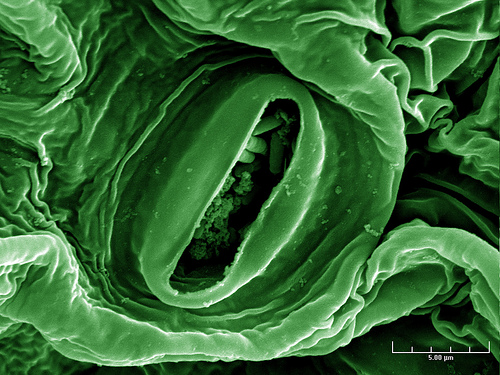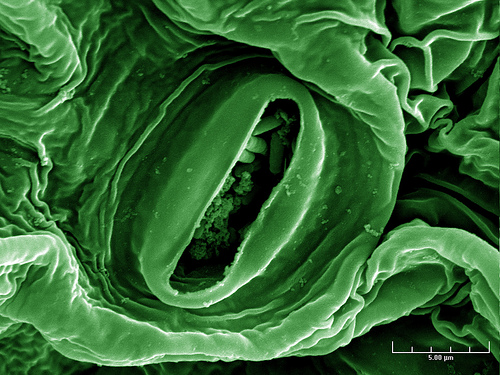 E. coli-infected lettuce. Photo: agrilifetodayFood safety advocate and lawyer Bill Marler has served as one of the most persistent voices covering the deadly German E. coli outbreak and warning that the same thing could happen in the U.S. One of his concerns about our vulnerability comes from the fact that the FDA has been cagey in the past about exactly which of the many disease-causing strains of E. coli are considered illegal in food.
E. coli-infected lettuce. Photo: agrilifetodayFood safety advocate and lawyer Bill Marler has served as one of the most persistent voices covering the deadly German E. coli outbreak and warning that the same thing could happen in the U.S. One of his concerns about our vulnerability comes from the fact that the FDA has been cagey in the past about exactly which of the many disease-causing strains of E. coli are considered illegal in food.
He was therefore reassured when Donald Kraemer, deputy director of the FDA’s Center for Food Safety and Applied Nutrition and a top FDA food safety official, said unequivocally in a June 3 statement on the German outbreak published on the FDA website that “the FDA considers any disease-causing strain of E. coli in food to be illegal.” Not much wiggle room there.
Marler was then equally outraged the other day when he realized that the FDA scrubbed Kraemer’s comment from its website while leaving the rest of Kraemer’s statement intact. Indeed, he wondered if “revisionist history” was at work. As he observed, the FDA made the change without comment. Marler and I both wondered exactly what was going on.
In response, I contacted the FDA to see if they could shed some light on the change. A FDA spokesperson sent on a statement that confirmed Kraemer’s sentiment:
On June 3, 2011, FDA posted an early draft of a press release titled “FDA statement on E. coli O104 outbreak in Europe.” Less than an hour later, FDA posted and issued a final release. As we have been stating since the outbreak in Europe, FDA considers any disease-causing strain of E. coli in food to be illegal.
According to the spokesperson, the quote was dropped as part of the “robust editing process” FDA releases go through. While I might question FDA’s editorial choices — why on Earth would you drop such a clear, unequivocal statement of FDA policy? — it does appear that the FDA is not searching for any wiggle room on E. coli. One less thing to worry about, I suppose.



